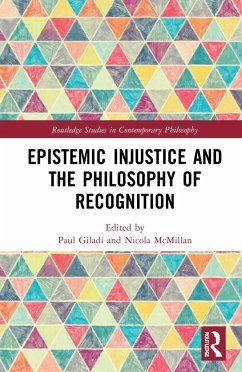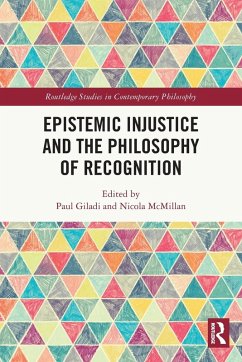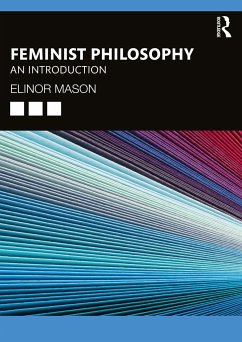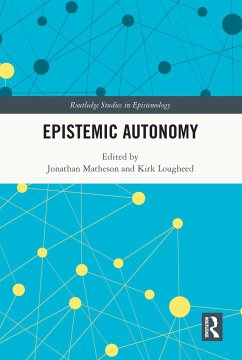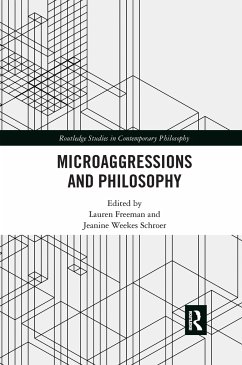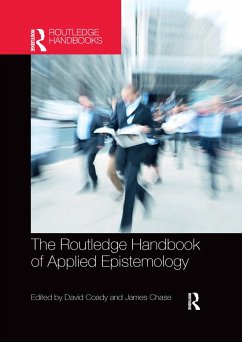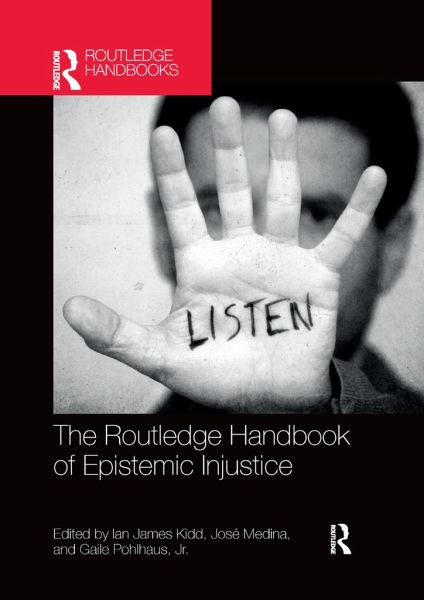
The Routledge Handbook of Epistemic Injustice
Versandkostenfrei!
Versandfertig in 6-10 Tagen
53,99 €
inkl. MwSt.

PAYBACK Punkte
27 °P sammeln!
In the era of information and communication, issues of misinformation and miscommunication are more pressing than ever. Epistemic injustice - one of the most important and ground-breaking subjects to have emerged in philosophy in recent years - refers to those forms of unfair treatment that relate to issues of knowledge, understanding, and participation in communicative practices.The Routledge Handbook of Epistemic Injustice is an outstanding reference source to the key topics, problems and debates in this exciting subject. The first collection of its kind, it comprises over thirty chapters by...
In the era of information and communication, issues of misinformation and miscommunication are more pressing than ever. Epistemic injustice - one of the most important and ground-breaking subjects to have emerged in philosophy in recent years - refers to those forms of unfair treatment that relate to issues of knowledge, understanding, and participation in communicative practices.
The Routledge Handbook of Epistemic Injustice is an outstanding reference source to the key topics, problems and debates in this exciting subject. The first collection of its kind, it comprises over thirty chapters by a team of international contributors, divided into five parts:
Core ConceptsLiberatory Epistemologies and Axes of OppressionSchools of Thought and Subfields within EpistemologySocio-political, Ethical, and Psychological Dimensions of KnowingCase Studies of Epistemic Injustice.
As well as fundamental topics such as testimonial and hermeneutic injustice and epistemic trust, the Handbook includes chapters on important issues such as social and virtue epistemology, objectivity and objectification, implicit bias, and gender and race. Also included are chapters on areas in applied ethics and philosophy, such as law, education, and healthcare.
The Routledge Handbook of Epistemic Injustice is essential reading for students and researchers in ethics, epistemology, political philosophy, feminist theory, and philosophy of race. It will also be very useful for those in related fields, such as cultural studies, sociology, education and law.
The Routledge Handbook of Epistemic Injustice is an outstanding reference source to the key topics, problems and debates in this exciting subject. The first collection of its kind, it comprises over thirty chapters by a team of international contributors, divided into five parts:
Core ConceptsLiberatory Epistemologies and Axes of OppressionSchools of Thought and Subfields within EpistemologySocio-political, Ethical, and Psychological Dimensions of KnowingCase Studies of Epistemic Injustice.
As well as fundamental topics such as testimonial and hermeneutic injustice and epistemic trust, the Handbook includes chapters on important issues such as social and virtue epistemology, objectivity and objectification, implicit bias, and gender and race. Also included are chapters on areas in applied ethics and philosophy, such as law, education, and healthcare.
The Routledge Handbook of Epistemic Injustice is essential reading for students and researchers in ethics, epistemology, political philosophy, feminist theory, and philosophy of race. It will also be very useful for those in related fields, such as cultural studies, sociology, education and law.





